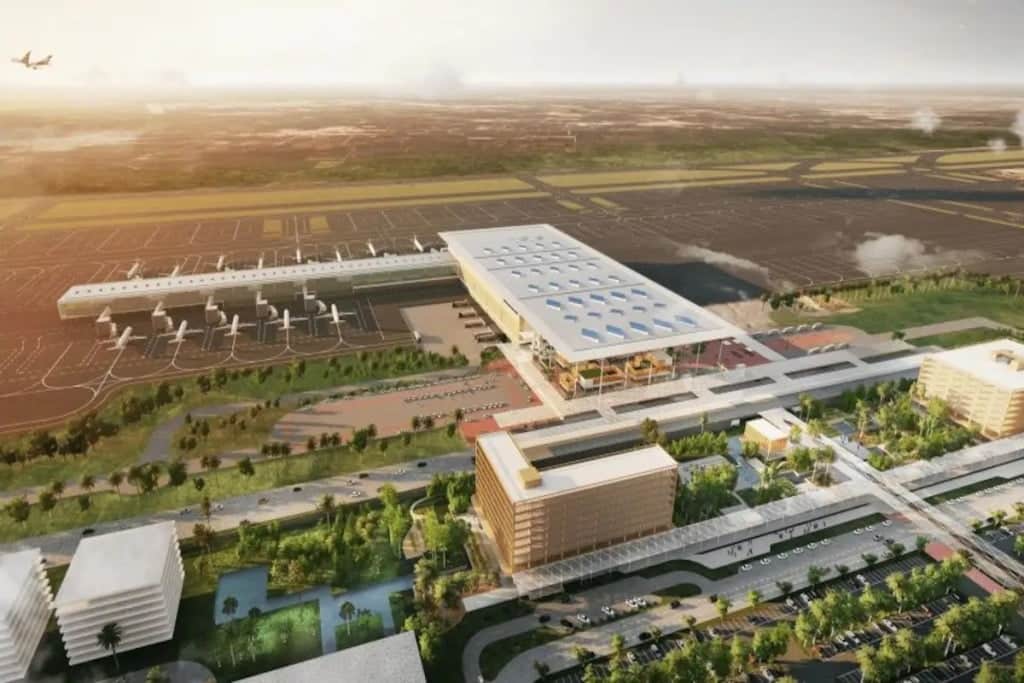Table of Contents
The Noida International Airport, also known as Jewar Airport, is a new aviation project in the Delhi-NCR region that promises to improve air travel by using environmentally friendly methods and sustainable architecture. This blog will look at the different green initiatives and ecologically responsible measures being put in place to make Jewar Airport a shining example of sustainable Eco-Friendly Aviation.
Green Infrastructure and Design:
Jewar Airport is being designed with an emphasis on sustainability, incorporating state-of-the-art green technologies and practices.
Some of the key features include:
Energy-efficient buildings: The airport’s terminal buildings and other structures are being designed to optimize natural light, reduce energy consumption, and improve overall efficiency.
Rainwater harvesting:
The airport will implement rainwater harvesting systems to conserve water resources and minimize the dependency on external water supply.
Solar power:
The airport plans to harness solar energy for its operations, thereby reducing its carbon footprint and reliance on non-renewable energy sources.
Waste management:
Jewar Airport will have a comprehensive waste management system in place, focusing on recycling, reducing waste generation, and proper disposal of waste materials.
Biodiversity and Green Spaces:
The airport’s master plan includes provisions for the preservation and enhancement of biodiversity and green spaces. The landscaping strategy will incorporate native plant species, promote ecological diversity, and create green buffers to minimize noise pollution.
Green Mobility and Transportation:
Jewar Airport is committed to promoting sustainable mobility solutions for passengers and employees. The airport will be well-connected to public transportation networks, encouraging the use of eco-friendly modes of transport like electric vehicles and bicycles.
Sustainable Aviation Fuel (SAF):
The airport authorities are exploring the use of Sustainable Aviation Fuel (SAF) to reduce the environmental impact of aviation operations. SAF is produced from renewable resources like waste biomass, which can significantly reduce greenhouse gas emissions compared to conventional jet fuel.
Community Outreach and Education:
Jewar Airport aims to engage with the local community and raise awareness about environmental issues and sustainable practices. The airport will conduct educational programs, workshops, and events to encourage local stakeholders to adopt eco-friendly habits and support environmental initiatives.
The Noida International Airport (Jewar Airport), with its dedication to environmentally friendly methods, green technology, and responsible expansion, is set to establish a standard for sustainable Eco-Friendly Aviation. Jewar Airport will meet the region’s increasing demand for air travel while also setting a new benchmark for airports globally and leading the path for a greener and more sustainable future in aviation by integrating sustainability into every element of its development and operations.



